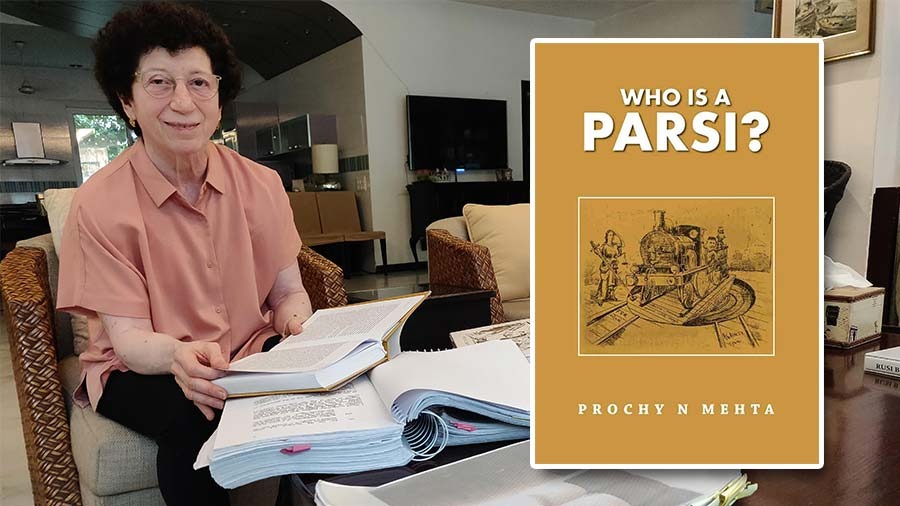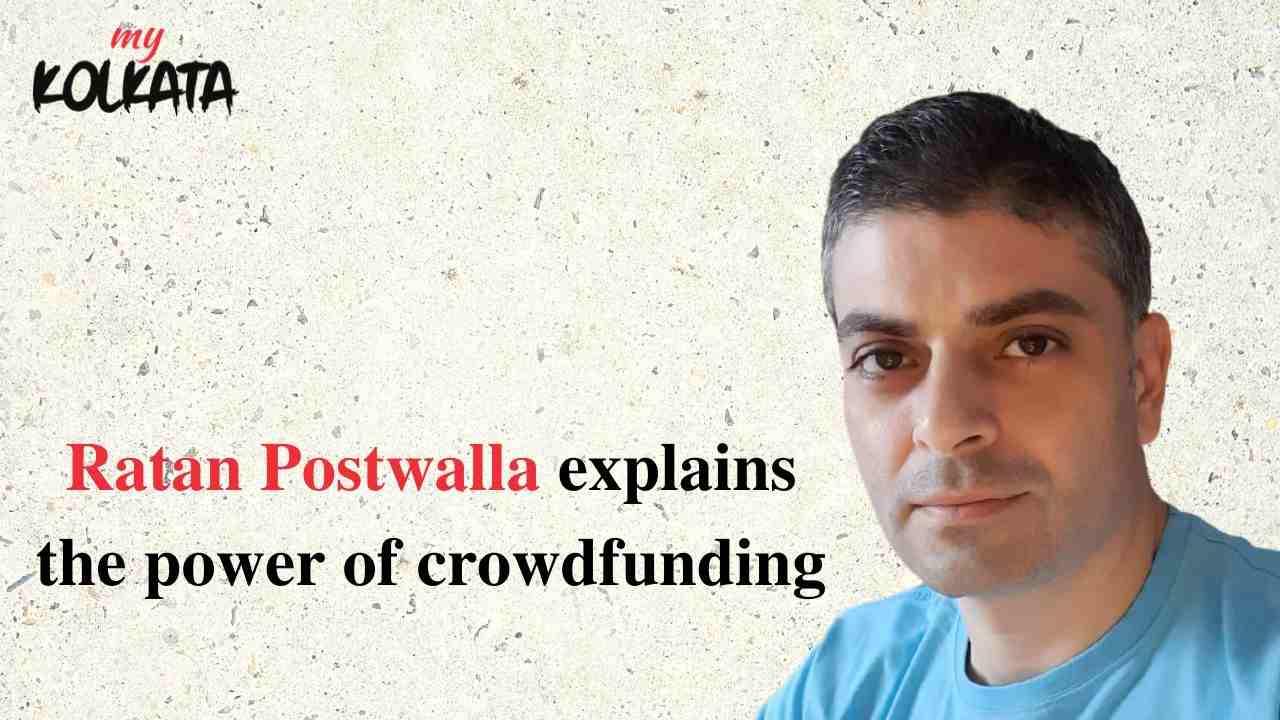In her latest book ‘Who is a Parsi?’ author Prochy N. Mehta studies the Parsi community and focuses on the rights and privileges of women.
In an exclusive video interview with My Kolkata, Ratan Postwalla, a prominent Parsi in Kolkata, talks to Prochy and her husband Noomi Mehta, chairman of Selvel One Group, about the book and their thoughts on certain beliefs the Parsi community follows.
Some excerpts from the conversation…
Ratan: What is the inspiration behind the book and the title?
Prochy: We, the Parsis, have been part of India for centuries but there is no definition of ‘who is a Parsi?’. So I decided to look into this matter. There are some studies on the community but no study on the rights and privileges of women. Many women have been deprived of their rights on the basis of folklore, heresay or just half-truths.
Parsi and Zorastrian — what do these two words mean and can they be used interchangeably?
Noomi Mehta: Parsi and Zorastrian are a tautology, which is to say that they mean one and the same thing. The word Zorastrian came much before, in the 1800s, but the word Parsi has been coming down from history. We’ve come from a region of the Pars province, which was at that time the whole of Iran today. Coming from Pars, we were known as Parsic or Persies and ultimately Parsi. The only case we’ve had in independent India, after we adopted our constitution, was a case by Justice Modi, who went into great detail, to examine the word Parsi and Zorastrian. He made a detailed judgement, several pages long, and he appointed several people, religious scholars, archeologists, to try and find out the answer. He came to the conclusion that Parsi and Zorastrian mean one and the same thing.
How did the journey of research begin?
Prochy: My daughter is married to a non-Parsi (or non-Zorastrian) but the couple had decided to bring their children up in the Parsi faith. Accordingly, my grandchildren would accompany us to the fire temple for quite a while until we received a phone call requesting us to stop. On enquiring why, we were told the trust deed is sacrosanct.
Being a woman myself, and having faced the discrimination, I got curious and studied old records to clear my doubts.
What did you learn from the trust deed?
Prochy: I studied the trust deed, which I had not read earlier, and I learnt that it stipulated that we are to follow the Bhuggasarth priests of Navsari in the territories of the Gaekwad of Baroda and Dastur Kaikobad Aderbad Dastur Noshirwan in particular in performing our religious rites and practices. I had not heard of either of them and so I decided to inquire into what important events had occurred in the community before 1915, when the trust deed was written. This was to understand the settlor’s wish in the trust deed when he selected the Bhugasarth sect of priests and Dastur Kaikobad in particular “to examine, regulate and control the religious rites, ceremonies and services.”
You were helped by Fali Nariman, India’s foremost constitutional lawyer, in putting the book together…
Prochy: Yes. In this endeavour, I was guided and supported by Fali Nariman, who helped me in putting the facts and legal aspects together. He has written some chapters in the book, and the foreword, where he has expressed his personal point of view on the current state of law regarding inter-married Parsi women, and the constitutional remedy available to enforce it.
The court judgement mentioned in the book, Saklat vs Bella, hasn’t been published before. Why do you feel this was particularly important?
Prochy: I obtained the entire Saklat vs Bella judgement of 700 pages from the Privy Council archives thanks to Mitra Sharafi, the legal historian of the University of Wisconsin. It contains the cross-examination of three of our high priests in India at that time, one of whom had performed the navjote ceremony of Bella, who was the daughter of a Parsi mother and non-Parsi father. Another head priest did the navjote of Susaune Braire, a French Christian lady, to enable her marriage to Ratan Tata, father of JRD Tata.
Watch the video for the rest of the conversation.
Prochy N. Mehta is an Asian record holder in sports and also the first female president of the Calcutta Parsee Club. She is actively involved in several companies including the business started by her father Rusi B. Gimi, eminent social worker and pioneer in outdoor advertising in India.
'Who is a Parsi?’ by Prochy N. Mehta, published by Niyogi Books, is available at Starmarks across Kolkata and on Amazon.

